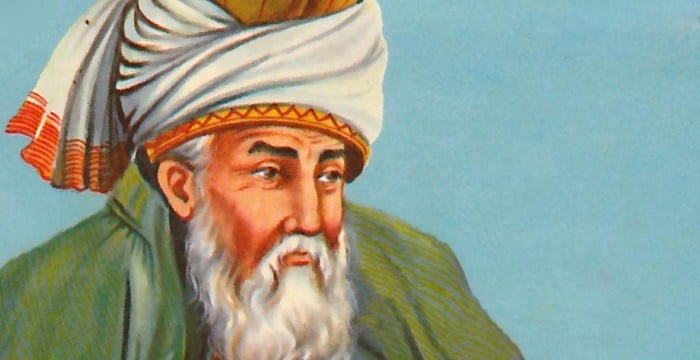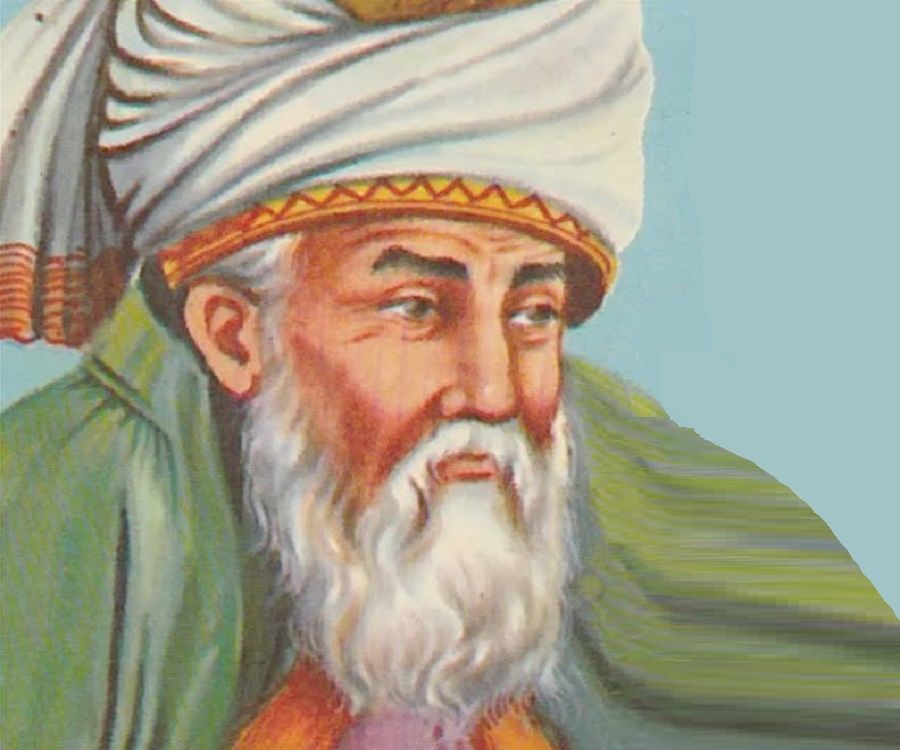Imagine a poet from the 13th century, a voice from eight hundred years ago, whose words still speak to us today. It's truly something to think about, isn't it? That kind of enduring message, in a way, feels quite special. We are talking about Mevlana Jalaluddin Rumi, a person whose writings continue to touch hearts and minds across the globe. His wisdom, you see, is not just for one time or place; it seems to just keep giving, generation after generation.
So, when we hear the name "Sir Carter" in our current times, it perhaps brings a little bit of that old wisdom into a very new setting. This connection, while perhaps seeming a bit unexpected at first glance, invites us to think about how timeless ideas find their way into the present. It makes us consider how the deep thoughts of a historical figure like Rumi can still hold meaning for us, even for a child born into a famous family today.
This article explores just that: the lasting power of Rumi's words and how they resonate with the world we live in now, connecting perhaps even to a name like Sir Carter. It's about seeing how ancient wisdom, in some respects, continues to be a source of inspiration and guidance for many people, helping us make sense of our lives and the things around us.
Table of Contents
Rumi: A Glimpse into a Timeless Life
Rumi's Enduring Message: What Makes It Last?
The Garden of Rumi: Wisdom for Our Minds
Rumi's Influence Today: The Rumi Forum and Beyond
Connecting the Dots: Rumi's Wisdom for Sir Carter's Generation
Frequently Asked Questions About Rumi and His Wisdom
How do Rumi's poems remain relevant in our modern world?
What is the Rumi Forum's main goal?
Can Rumi's poetry help with mental well-being?
Looking Ahead: The Continued Journey of Rumi's Ideas
Rumi: A Glimpse into a Timeless Life
Jalaluddin Mevlana Rumi, a truly important figure, was a jurist and a poet. He was also one of the leading lights of Sufism, a spiritual path. Born in 1207, he lived and wrote during a time very different from our own, yet his insights, you know, feel very current. His works, mostly written in Persian, are a record of his deep thoughts and experiences.
He is often called "Mawlana," which means "our master," a sign of the deep respect people held for him. Rumi passed away in 1273, but his words, it's almost as if they never left us. He has cemented his place as one of the most beloved and influential poets the world has ever known. His life story provides a clear record of highlights, and it helps to clarify his journey.
Personal Details and Biographical Data of Rumi
| Full Name | Jalaluddin Mevlana Rumi (also known as Mevlana, Mawlana) |
| Born | September 30, 1207, Balkh (present-day Afghanistan) |
| Died | December 17, 1273, Konya (present-day Turkey) |
| Occupation | Jurist, Poet, Islamic Scholar, Theologian, Sufi Mystic |
| Primary Language of Works | Persian |
| Associated Movement | Sufism, Mevlevi Order |
| Notable Works | The Masnavi, Divan-e Shams-e Tabrizi |
Rumi's Enduring Message: What Makes It Last?
So, what is it about Rumi's poems that makes them resonate so strongly, even today? His poems are short, to the point, and incredibly effective. He had a way, you see, of using just a few words to convey really complicated philosophical ideas and images. These ideas often touch on things like love, the divine, the afterlife, and religion.
His writing speaks to universal feelings and questions that people have always had, and still do have. Whether it's about the search for meaning, the pain of separation, or the joy of connection, Rumi seems to capture it all. This universal appeal, arguably, is a big part of why his words continue to find new readers and listeners, nearly a millennium later.
The Garden of Rumi: Wisdom for Our Minds
Rumi often used the image of a garden in his poetry, and these "garden quotes" offer a lot to think about. He said, "Beauty surrounds us, but usually we need to be walking in a garden to know it." This suggests that sometimes, you know, we need to slow down and really look to see the good things around us. It's a bit like saying that the beauty is always there, but we might just need to open our eyes a little more.
Another powerful idea from Rumi's garden quotes is "The garden of the world has no limits, except in your mind." This really points to how our own thoughts can either free us or hold us back. It's a reminder that our perception, in some respects, shapes our reality. And then there's the thought, "Grief can be the garden of..." This one suggests that even difficult feelings, like grief, can eventually lead to growth or new understanding, which is a pretty deep idea, actually.
These ideas, you know, are very helpful for our mental well-being. They encourage us to look for beauty, to challenge our own limitations, and to see even sadness as a path to something new. Seeking mental health through Rumi's poetry, as explored by groups like the Rumi Forum, shows just how much his words can offer comfort and insight for our inner lives.
Rumi's Influence Today: The Rumi Forum and Beyond
Rumi's impact is not just in books; it's alive in organizations like the Rumi Forum. The Rumi Forum was founded in 1999 with a clear mission: to encourage interfaith dialogue, to help people understand different cultures, and to bring groups together. This forum, you see, works towards strengthening a culture of understanding and acceptance.
They do a lot of interesting things. For example, the Rumi Forum organized a live Sufi music performance by Sufi Melody with Sara Snyder, which is a lovely way to experience Rumi's spirit. They also held their monthly circle on January 9, 2025, to study Abrahamic scriptures on "gratitude" with Rev. Kate Costa, our study leader from Good Shepherd Lutheran Church in. This shows their commitment to open discussion and learning.
The Rumi Forum is affiliated with the Hizmet Movement, which is a transnational civil society network. This movement, you know, stands for human rights, equal opportunity, democracy, and non-violence. It's pretty clear that the forum's work, which marked its 25th anniversary with a 2024 annual gala and dialogue awards ceremony, keeps Rumi's spirit of peace and understanding going strong. They even partner with groups like the Jewish Islamic Dialogue Society (JIDS), where members frequently turn to Prophet Muhammad (PBUH) for inspiration. We submit that for any open-minded person, these efforts are very valuable. Learn more about interfaith initiatives on our site.
Religion remains an important part of American culture, as our population grows and our values evolve. Although we are seeing small decreases in religiosity among Americans, the need for dialogue and understanding, as promoted by the Rumi Forum, is perhaps more important than ever. Students like Jungyeon Lee from Georgetown University, who studied "religion and demographic shifts" and "using Durkheim's theory to analyze population trends," even found their internship at the Rumi Forum to be a valuable experience. This shows how Rumi's legacy, in a way, inspires academic and social engagement today.
Connecting the Dots: Rumi's Wisdom for Sir Carter's Generation
So, what does all this have to do with "Sir Carter now"? The naming of a child, especially one in the public eye, often carries meaning. Whether it's a direct nod to Rumi or simply a name chosen for its sound, the fact that "Rumi" is part of a prominent child's name brings this ancient wisdom back into contemporary conversations. It's a chance, you know, for more people to discover the beauty and depth of Rumi's words.
For Sir Carter's generation, Rumi's short, incredibly effective poems offer a valuable resource. In a world that moves very fast, Rumi used few words to convey complicated philosophical ideas. This directness, you know, can be quite appealing to young people looking for quick, yet deep, insights. His messages about love, about finding meaning, and about seeing the divine in everyday life, can offer a kind of anchor.
These timeless ideas, arguably, can help young people navigate the world around them. Rumi's focus on inner peace and connection, rather, can be a calming presence. It's about finding beauty, even when things are tough, and understanding that our own thoughts shape our experiences. This wisdom, in some respects, is a gift that keeps giving, no matter your age or your background. It's pretty cool, actually, to think about.
Frequently Asked Questions About Rumi and His Wisdom
How do Rumi's poems remain relevant in our modern world?
Rumi's poems speak to universal human experiences, like love, loss, and the search for meaning. These feelings, you know, haven't really changed over centuries. His ability to convey complicated philosophical ideas in short, effective ways makes his work accessible. This means his messages about inner peace, connection, and the human spirit resonate with people today, offering guidance for personal growth and emotional well-being. It's quite a feat, really.
What is the Rumi Forum's main goal?
The Rumi Forum was founded with the mission to foster interfaith dialogue, intercultural understanding, and intergroup engagement. They work towards strengthening a culture of peace and acceptance among different communities. This includes organizing events like Sufi music performances and study circles on various scriptures. Their aim, you see, is to build bridges and encourage open conversation, which is very important, in a way.
Can Rumi's poetry help with mental well-being?
Absolutely, Rumi's poetry can offer comfort and insight for mental well-being. His "garden quotes," for example, encourage us to find beauty around us and to see challenges, like grief, as opportunities for growth. His emphasis on inner work and spiritual connection can provide a sense of calm and perspective. Seeking mental health through Rumi's poetry is a recognized practice, offering a gentle path to self-reflection and healing, which is pretty helpful for many people, actually.
Looking Ahead: The Continued Journey of Rumi's Ideas
The fact that Rumi's name, or a name inspired by his legacy, appears in current popular culture, like with Sir Carter, simply highlights the enduring appeal of his wisdom. Eight centuries after he lived and wrote, his words continue to offer profound insights into the human condition. His short, incredibly effective poems, you know, still manage to convey complicated philosophical ideas with few words.
As our population grows and our values evolve, Rumi's messages about love, god, the afterlife, and religion remain a source of inspiration. The work of organizations like the Rumi Forum, celebrating its 25th anniversary, further ensures that his teachings on interfaith dialogue and human rights stay alive. It shows that ancient wisdom, in some respects, is not just for history books, but it's a living, breathing guide for us now, and for generations to come. You can find more about these efforts by visiting this page on our site.



